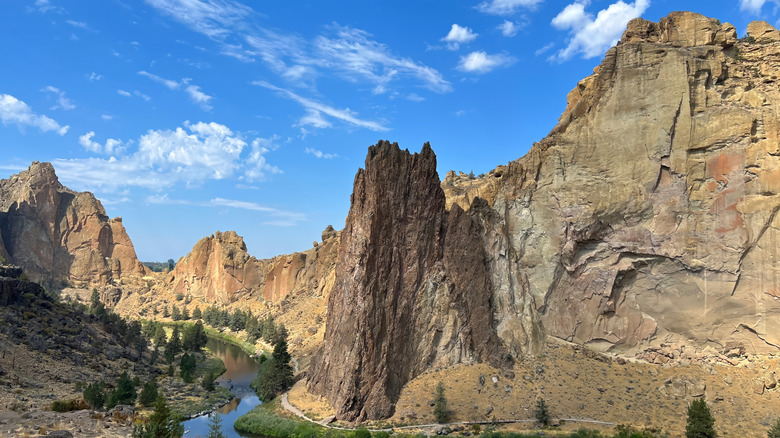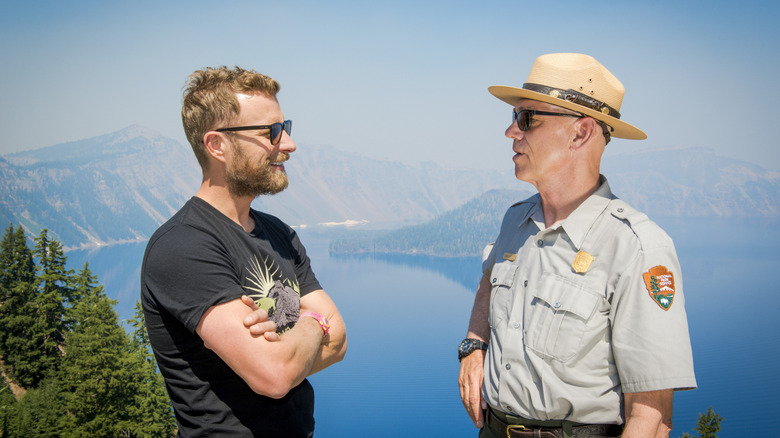Your Oregon State Park Camping Trip Just Got More Expensive, Unless You're One Of These Lucky Few
Traveling the country and exploring different parks and forests is part of the beauty of summer. There's nothing quite like packing up and taking a road trip to an epic destination somewhere else in the U.S., including beautiful and scenic locations like Oregon. Unfortunately, thanks to new fees for visitors, your park vacation may soon become more expensive. This price change affects all state parks in Oregon, including the state park on a serene stretch of Oregon's coast that boasts a secluded beach lined with lush rainforest.
As of July 1, 2025, new fees for parking and camping include a 25% price hike. This is on top of the additional fee increases at the beginning of 2025 for camping and day-use. However, this new, mid-year price change doesn't cost everyone; it only affects people from outside the state. Those who reside in Oregon continue to pay the same prices listed at the beginning of the year. These price increases were significant, with day use fees changing from $5 to $10 and campground and reservation costs all increasing by $2 to $5. This means, for anyone hoping to travel to Oregon and see the state parks, you're looking at $12 for a single day-use parking pass and $37 for the annual option. Camping can cost out-of-state visitors anywhere between $25 and $147 per night. This isn't the first time the fees have differentiated for residents and non-residents. In 2022, a 25% surcharge for RV campsites went into effect for those with tags from different states.
Why these Oregon fee changes are necessary
In addition to these increased fees, the Oregon Parks and Recreation Department is working to be a little more open and communicative, so that visitors understand the importance of these fees and where the money goes. Lisa Sumption, the director of the Oregon Parks and Recreation Department, when talking to Oregon Public Broadcasting, explained their goals. "We're not good about telling the story of what it truly takes to be opening and inviting and welcoming and safe to everyone." She continues, "People have this idea that it's a park, and it's nature, and it's free. There's so much that goes into making sure it's available." Currently, the revenue from passes supports sustainability efforts and keeps all the behind-the-scenes running. Sumption also mentioned that they hope this fee will not be permanent.
The increased fees also serve another purpose, which is to help reduce congestion. Visiting natural areas and state parks has increased in the last few years, leading to a boom in daily visitors that can. To try and balance costs and people, reservations for camping and visiting have gone into place in many areas across the nation, as well as increased fees. Of course, if you want to immerse yourself in nature and don't have the money to spend at some of these other destinations, you can check out the best national parks that are always completely free to enter. This also wasn't the only change to be released on July 1. There were some that affected e-bike users as well. However, these rule changes make e-biking on Oregon's trails and beaches a lot easier.

